-
Posts
8,140 -
Joined
-
Last visited
Posts posted by Mattress
-
-
Best nipples in the business!
-
If you're over 30, don't listen, unless you like to cry! Her voice! The lyrics! I'm so sad!
 I just think of the good old days...
I just think of the good old days...  I took her love for granted.
I took her love for granted.It's the best of her best, I'm being retrospective yall, it just wrecks me a bit. Im sorry.

 I didn't expect TUTBMP. Damn, sad. Her voice.
I didn't expect TUTBMP. Damn, sad. Her voice.I feel alcohol (etc) is heavily at play here ^ , but it is an exqusite compilation.
 Boring ass era though.
Boring ass era though. -
-
Liz witnessing this stun-gorge Demarchelier shoot:
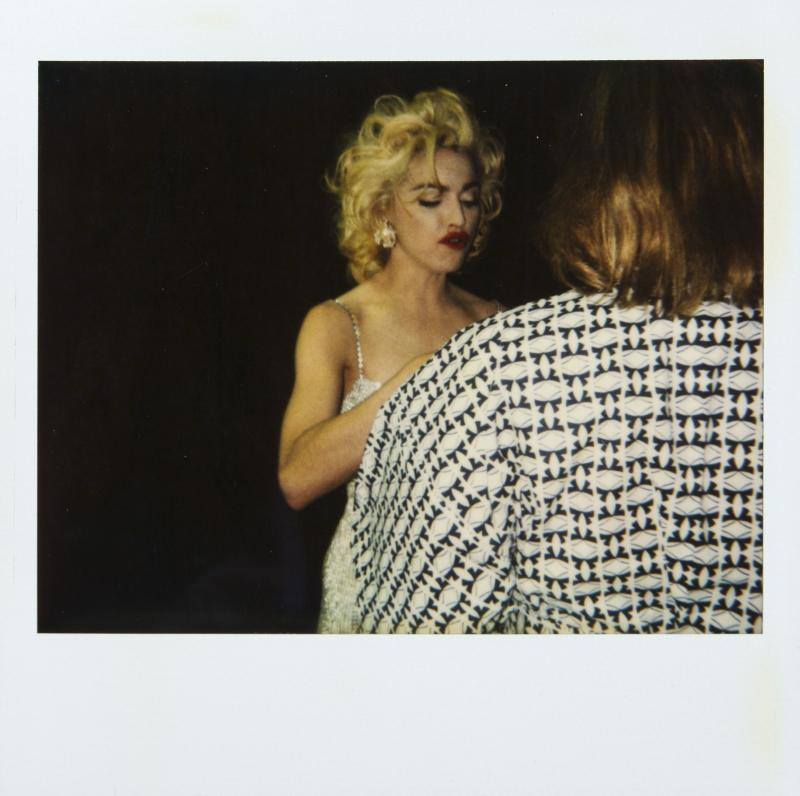
-
^ THE VALIDATOR SAYS THAT'S BULLSHIT.

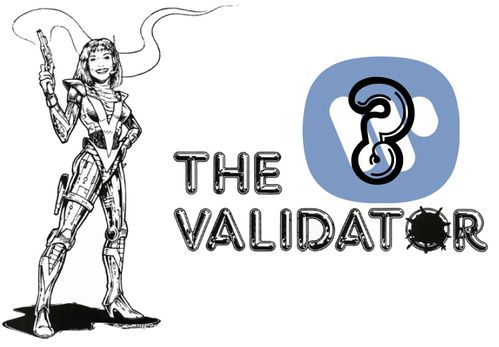
-
-
-
-
What's it like being 'Mom' to Madonna?: Liz Rosenberg is paid to keep the star out of trouble. With the launch of Sex and Erotica, she faces her greatest challenge, says Teresa Carpenter (from the New York Times, 1992)
 ON ONE wall of Liz Beth Rosenberg's office on the 20th floor of the Time-Warner Building in midtown Manhattan hang magazine covers depicting the rise of one Madonna Louise Veronica Ciccone, from boy-toy to super-vamp. Against the other wall stands a bank of hair dryers used by Madonna's troupe in Truth or Dare, the cinema verite account of her Blond Ambition tour.
ON ONE wall of Liz Beth Rosenberg's office on the 20th floor of the Time-Warner Building in midtown Manhattan hang magazine covers depicting the rise of one Madonna Louise Veronica Ciccone, from boy-toy to super-vamp. Against the other wall stands a bank of hair dryers used by Madonna's troupe in Truth or Dare, the cinema verite account of her Blond Ambition tour.Ms Rosenberg, 44, is a vice-president at Warner Brothers Records, where she is publicist for Seal, k d lang and other musicians. Running interference for the label's big gun, however, consumes nearly two-thirds of her time - maybe more from this week, when Madonna's latest album, Erotica, is released, followed by the already notorious book of photographs - Sex - in which the celebrity photographer Steven Meisel purports to document everything that Madonna finds a turn-on. She will also co-star with Willem Dafoe in the thriller Body of Evidence, to open here next year; the film has an NC-17 ('no children under 17') rating because of its erotic content.
Ms Rosenberg sits on one of three 'aqua' chairs confiscated as souvenirs from the tour's 'Material Girl' number. She is wearing purple leggings and gold sandals. Her blonde hair is swept back on one side and fastened with a faux tortoise-shell comb. She could be mistaken for Madonna's mother.
'She calls me Mom sometimes,' Ms Rosenberg acknowledges. 'I'm completely maternal, very protective toward Madonna. She's strong in a lot of ways. But I know a lot of it is just a front. I try to teach her things the way mothers want to teach their children about life: patience, empathy and calm. And humour. Sometimes I just remind her: 'Let's not take any of this too seriously.' '
Ms Rosenberg met Madonna, now 33, in 1983, when the singer walked into her office wearing 'a black outfit with a hundred rubber bracelets on each wrist'. Madonna was then an unknown singer and 'dance artist' on the Lower East Side club scene, who had been recruited by Warner Brothers to cut two singles. The publicist was struck by Madonna's fearlessness. 'Maybe that's one of the things that impressed me early on,' Ms Rosenberg says. 'I'm filled with fears.'
During the early days of her career, Madonna would drop into Ms Rosenberg's office to use the phone and talk about her boyfriends. More recently, when Madonna was having a much-publicised affair with Warren Beatty during the filming of Dick Tracy, he turned to Ms Rosenberg for advice on dealing with his inamorata, who, he claimed, lived her life too publicly. 'He was into the publicity game of another era - so elusive and the chase and all of that. It's just not the way publicity is any more.'
The way Ms Rosenberg plays the game is by creating the illusion of openness. She has advised Madonna never to say 'no comment', a phrase that, in print, has the effect of making a celebrity appear guilty as hell. The task of dealing with unruly reporters also falls to Ms Rosenberg. She has refined the art of clever one-liners, which often serve to amuse while stopping the questioner mid-sentence. For example, asked to confirm a rumour that Madonna once stubbed out her cigarette on a boyfriend, Ms Rosenberg replied: 'She doesn't smoke; she sizzles.'
Each morning the publicist calls Madonna to, as Ms Rosenberg puts it, take her temperature. 'If I have to disrupt her time in the studio,' she explains, 'I have to know if she's in a bitchy mood.' Ms Rosenberg's power within the industry derives from the fact that she controls virtually all access to Madonna and has authority to speak on her behalf.
How does Madonna, a self-professed control freak, feel about delegating the responsibility of speaking for herself? 'We've worked together for years and years and years,' the star says of Ms Rosenberg. 'She understands the consequences of whatever she says. I'd say 99 per cent of the time it is what I would have told her to say. We're at the point where we're reading each other's minds.'
In 1985, when Playboy published nude photographs taken while Madonna was a photographer's model, Ms Rosenberg says the singer came into her office wailing that her career was over. Ms Rosenberg recalls telling her: 'This is not a big deal. We're not gonna let it be a big deal.' Then she directed Madonna to 'get back on her horse' and perform at the Live Aid concert before a worldwide television audience. The incident quickly shrank to the status of a footnote to the Madonna legend.
Since then, Pepsi has dropped her as a spokeswoman after viewing her 'Like a Prayer' video, the Vatican has exhorted Roman Catholics to boycott her concerts in Italy and the Canadian police have threatened to arrest her for lewdness. But under Ms Rosenberg's deft manoeuvring, Madonna has managed to bob back like a weighted penguin.
Ms Rosenberg prides herself on setting Madonna up with interviewers with whom there will be good chemistry. The publicist seems proudest of a widely syndicated interview published last year by the Advocate, the gay newspaper. She hand-picked the interviewer, Don Shewey, who queried the star about such matters as dildos and what she did with her old underwear. Ms Rosenberg, who was ensconced in an adjoining room crocheting 'like Madame Defarge', says she thought Madonna came across as 'funny and witty and brilliant and sparkling'. The Advocate interview appeared contemporaneously with - and as something of a corrective to - the film Truth or Dare. The publicist felt the movie made her client out to be an angry harridan. 'I thought she was much too heartless in the film,' Ms Rosenberg says. 'I was like, 'Oh, Madonna. How come you talk about your family like that]' Sometimes she listens. Sometimes she doesn't'
Michael Musto, a columnist for the Village Voice who covers the New York club scene, says: 'Liz has the easiest job in the world, and the hardest. On one hand, she can call up any magazine and get Madonna on the cover. On the other, she has to take calls from every crackpot around.'
When the tabloid papers circulated a rumour that Madonna was HIV-positive, she issued a statement, on Ms Rosenberg's recommendation, that the Aids stories were false, adding: 'If this is what I have to deal with for my involvement in fighting this epidemic, then so be it.' The rumours stopped.
In private Ms Rosenberg is a collector of kitsch and an avid reader of true-crime books, professing a particular fondness for 'family murders'. She lives in an apartment on the Upper East Side of Manhattan, something she has aspired to since she was a teenager. 'I always wanted to be Doris Day,' she says. 'You know, career girl, apartment overlooking The City.' A nursing student from Long Beach, Long Island, she was drawn to the music business by an enthusiasm for 'show tunes, Laura Nyro and Marvin Gaye'.
After secretarial jobs with various PR firms, Ms Rosenberg went to Warner Brothers. As a secretary and assistant to the director of publicity she was given latitude to spot and promote new talent. Among her early finds was Van Morrison. 'Nobody wanted to cover Van Morrison,' she recalls. 'I said: 'I'll do it.' I would have scrubbed his bathroom.'
During her ensuing 20 years at Warner Brothers, she has helped to mould the images of Fleetwood Mac, Rickie Lee Jones and Van Halen ('I personally distributed the backstage passes to the cutest girls in the audience'). But now she has attained celebrity in her own right, as Madonna's press agent.
'I count how many times I hear the 'M-word' mentioned in the course of my day,' she says with amused exasperation. 'My doorman asks me how Madonna is every morning. You know, my Aunt Pauline on her death bed asked: 'How's Madonna? Is the marriage gonna last?' I could get crazy, or I could just laugh about it.'
Two years ago, Ms Rosenberg married Phil Citron, a booking agent for Tom Jones and Julio Iglesias. Mr Citron is the one person in his wife's life who professes no interest in her celebrated client. 'I love him for that,' explains Ms Rosenberg, 'because obviously there are people who just see me as a person who will get them a little closer to Madonna.'
Meanwhile, Ms Rosenberg is gearing up to cope with the clamour over Erotica and Sex. The challenge for the publicist will be to position the album and book as works of art, not simply pornography. She describes the book in carefully chosen phrases such as 'beautifully done' and 'very, very funny'.
Ms Rosenberg knows there is a line that even her superstar client cannot cross. As the darling of the youth culture enters her mid-thirties, her ever-changing image will need to mature. Pop artistes who preen in lingerie, or nothing at all, tend to have a short shelf life.
No problem, says Ms Rosenberg, whose job, it seems, extends to putting the best possible spin on middle age. 'I'm sure that Madonna is going to do the forties like nobody - and be great at it. I just think she'll wear the most sophisticated, fabulous clothes and be worldly and a patron of the arts. I can't wait to see it.'
-
-
"The good ol' days"

-
*dramatic wall slide*
-
Was a video single really in the works though or was it just well founded speculation given that she'd "done it again" in terms of having gone too far with a video and also that the JML video single was so successful? I remember hearing bits about it at the time but I didn't think anything concrete was in the works. Any more info please if you have any?
Yeah I'm pretty versed with my M trivia also and I never heard a thing about an Erotica video single. There's nothing mentioned in any of the interviews and articles from that time period or the more reliable biographies like Encyclopedia Madonnaica (and there were A LOT)
Pre-internet, it was listed in those Muze computerized music, book and video title catalogs at every mall and chain record store in America (and possibly abroad) with an October 27, 1992 release date, one week after the album/book. It was distinctly classified, in addition to the various audio formats, as a VHS tape with an approximate running time of 4 minutes. I tried to order that fucker at least 10 times before giving up. Drove me crazy. It stayed in their database but was finally updated to say "unavailable" around 1999.

-
y'all sure you want one?

The Chinese honor their dead out of both respect and fear. And for good reason. An unsatisfied soul could become a ghost and make life unbearable. Whether or not the Chinese truly believe in ghosts, they occupy a large part of their imagination, and the hopping ghost (with its recent star appearances on the Hong Kong move scene) is the most popular.
Q: What is a hopping Ghost?
A: Scientifically speaking, it's an undecayed corpse whose main soul, the po, has not yet left for the other world. Now, a po on the loose in the mortal world is bad news. It turns into an evil spirit. And a po with a corpse to occupy is even worse. It becomes a hopping ghost.Q: What makes a hopping ghost hop?
A: Many things, but mostly when a homesick corpse, not wanting to be buried in an unfamiliar village, hops home, po and all. In documented cases, the hopping corpse is often accompanied by an entourage of monks, Taoist priests, and mourners.Yin shock makes ghosts hop, too. The yin, as opposed to the yang, is dark, mysterious, and usually out to make trouble. (Cats and the moon are characteristically yin.) Should a fresh corpse somehow come into direct contact with a yin sort of energy, then it reacts, often becoming charged with superhuman powers. And it hops.
Q: How do you know when you've chanced upon a hopping ghost?
A: It's not terribly difficult to tell. Despite the corpse's superhuman energy, rigor mortis does set in, and the joints get stiff enough that it is forced to hop stiffly. According to some reports they have resorted to flying. As for appearances, a hopping corpse usually wears Qing Dynasty burial clothes. As these went out of fashion a hundred or so years ago, the corpses stick out like a sore thumb. And they don't worry too much about personal hygiene either. One hopping ghost stunk so badly that one whiff killed a relative and knocked another out cold. Some hopping ghosts are uglier than others. Some have tounges that hang down to their chest or eyeballs that aren't too firmly attached to their sockets. But all hopping ghosts have unusually long fingernails that are their most lethal weapon (especially being on the end of stiff outstretched arms). Hopping ghosts keep best in coffins or caves. They're not much for sunbathing. In fact, the sun's first rays are enough to stop a hopping ghost dead in its tracks.Q: What should I do if I run into a hopping ghost?
A: Don't breathe. Hopping ghosts detect humans by smelling their breath. The old clove-of-garlic-keeps-the-ghost-away trick will not work here. You could try pasting a yellow and red Chinese death blessing on its forehead. This will quiet many unsettled souls. In the event that you don't have the above handy, just whip out any eight-sided Taoist mirror, a straw broom, long-grained rice, or just a few drops of fresh chicken blood. In a few seconds the corpse will be hopping scared.Q: Just how dangerous are hopping ghosts?
A: Well, lethal. Normally the hopping ghosts hops forward until it has gouged the victim's neck and choked him/her to death. This is not a pleasant way to go. In one other case, the hopping corpse preferred to plop down on sleeping people's heads thereby smothering an entire hotel full of guests.Q: What can I do to get rid of pesky hopping ghosts?
A: There's only one way to do it, and that is to burn them, coffin and all. -
She looks so damn good.
-
her nipple made papadontpreach too ; ))
Yeah, there's more nipple in "Papa Don't Preach" than there was in the MTV cut of "Erotica".

http://forums.madonnanation.com/index.php?showtopic=42428

-
this is the version that premiered on MTV.
Really? This version premiered on MTV? I always thought this version only aired in France.
I believe it was this one. Then they said they would only play it after midnight. Then it only aired three times.
Sadly, MTV US wouldn't show this version. The edit (with black bars over the hitchhiking scene) found on the Celebration DVD is the exact version shown by MTV preceded by a warning from Kurt Loder:
(@ 0:24)
Of course, for all of their sanitization efforts, her nipples sill made it in the video during the post-bridge flashing segment...

The above "uncensored" cut was likely what would have been included on the canceled video single.
-
Um. Billboard took this from her Summer 1998 (!) Rolling Stone feature:
Madonna's Indian Summer
When I was a little girl, I had to work in my father's vegetable garden every summer. My father has a work ethic that makes mine look nonexistent, so the school's-out-for-summer stuff does not exist in my family. Basically, I was either put to work at my house, weeding and spraying insecticide, or we had to go to my grandparents' house in Pennsylvania, where we'd fix up the house and the yard all summer. When I got older and started to figure out what I wanted to do, I spent a summer going to a local college and taking dance classes - anything to keep from mowing the lawn. But, really, aside from that, I do not associate summer with fun and free time, not as a child.
So maybe that's why when I think of my favorite summer songs, the ones I think of are attached to angst-ridden memories. Actually, I like the summer better than the winter. For one thing, I like the heat better than the cold - I still don't have air conditioning. I hate air conditioning. Because I don't like to be tricked. I want to know exactly how hot it is, and I'd rather just adapt to the heat, because that's what we're supposed to do. I also think summer is a superior season because you can see everybody's outfits. You can't make fashion statements when it's cold out, and you never know what anyone's wearing. And it's just a lot easier to see people in the summer, so they can't trick you, either.
Both of my stories take place in New York - and I think New York is the best place to be in the summer, even if the heat and humidity make everybody grouchy. It may be more civilized in California, because it always gets cool at night, but it's so boring to be there. It's always summer in L.A., so no one appreciates it. When summertime comes in New York, everybody seems to be celebrating for three months; it feels like the city comes to life.
When I think about what a summer song is, at first I think of something celebratory and up - but that's not really quite it, because I've dug some pretty incredible summer songs that weren't. But it definitely has to have a phat groove. It's not about Enya in the summertime, you know what I mean? For example, "Don't You Want Me," by the Human League, reminds me of the early days of Danceteria, in New York. I lived on the Lower East Side, at Fourth and B, in a tenement apartment - without air conditioning. I didn't have a record deal yet, but my demos were hot off the press, and I used to go to Danceteria every weekend, trying to meet the DJ or an A&R person to give my tape to. I'd spend all night on the dance floor in some hideous outfit while all the pretty, skinny, fashionable girls threw their drinks on me. But when that song came on, I forgot my humiliation. I didn't care that I was soaking wet and didn't have any friends.
Prince's "When Doves Cry" was another song I used to escape into when it first came out. By then I did have a record contract, and I had moved to a nice loft on Broome and West Broadway. But there was still no elevator, so I had to walk up six flights of steps to get to my loft. I rode my bike everywhere, with a Walkman and headphones on, and one hot summer day I came in and I just couldn't carry my bike up those stairs one more time. I was hating my family and my life at the time, and I just collapsed in the stairwell with that song playing in my headphones, crying my heart out and feeling incredibly sorry for myself.
You may have noticed that both of these stories are about music as a vehicle for transcending misery (the story of my life). I do think that music is the most spiritually evolved art form. And it is absolutely the most universal: It doesn't matter where you come from or who you are or how well-educated you are or how cool you are - how rich, how poor, how anything. It's primal, and it's visceral, and it's a cure for the summertime blues. It's about coming to life.
Adapt to the heat.
Madonna
-

http://www.laweekly.com/music/henry-rollins-in-the-80s-even-i-listened-to-madonna-5674065
"Don Van Vliet, otherwise known as Captain Beefheart, was a wise man. The more you listen to his music, the better it gets.
On his album Lick My Decals Off, Baby, released in 1970, there’s a song called “The Smithsonian Institute Blues (or the Big Dig)” on which he says something quite insightful: “It sure looks funny for a new dinosaur/T’be in an old dinosaur’s shoes.”
I have several Remember the ’80s compilation CDs. I don’t keep them as a joke. I find them to be a fascinating time capsule and a great vantage point by which to view a decade that is not all that far behind us yet sometimes seems centuries in the past.
I tend to view any time period in which I was alive through what music was around and what I was listening to. There was so much music happening in the 1980s, it is impossible to say it was all good or all bad. The good stuff was great and the bad … well, to me, it was a low-impact bad. Still, it makes you wonder why songs like Cutting Crew’s epic “(I Just) Died in Your Arms” and countless others like it were so incredibly popular.
For the last few weeks, I’ve been listening to a lot of 1980s records by artists who emerged in that decade, like Madonna, as well as acts such as Bowie, Springsteen and ZZ Top, who found themselves suddenly verging on the archaic as the decade almost ran past itself at MTV warp speed. These three changed their sound radically and, by doing so, not only survived the ’80s but fairly exploded in popularity, with records that sound alien to what they did before.
On a music-fanatic sidebar, I think one of the greatest sleights-of-hand ever perpetrated by an artist was David Bowie going from 1980’s Scary Monsters, one of the greatest records I have ever heard, to Let’s Dance in 1983, which besides Stevie Ray Vaughan’s searing guitar lines is almost completely dismissible. It is hard to believe it’s the same guy who put out Low!
It is my opinion that the savvy Mr. B. thought it was time to land his spacecraft and drench his beak in the deep lake of American financial liquidity.
I think it would be difficult-to-impossible to pinpoint the “thing” that drove all the decade’s big hair and shoulder-padded jackets. But I do remember, at least in America, an almost narcotic sense of optimism. Even if you were broke, there was a feeling that somehow, things were good — or at least, if the ocean liner was iceberg-bound, you might as well finish off the champagne.
President Reagan sold optimism well. He sold it better than any president I have ever seen. Even when I knew what he was saying was based in a reality that didn’t exist, he really made me want to drive that car off the lot.
For every current, there is an undercurrent. To get the desired effect of ’80s joy and make it stick, dissenting voices had to be silenced.
Seasoned veterans of L.A. might recall when, in the early part of the decade, heroin was almost handed out in grocery bags. It was cheap, plentiful and potent. I had never heard of Hoover’s COINTELPRO at that time, but I knew something was up. Someone wanted all the punk rockers dead, addicted or in jail.
Meanwhile, the big music was so bright and so happy. It was like living in two worlds at once.
In the 1980s, even I used the music at times as a narcotic. In 1984, a particularly grueling year of touring — fraught with violence, tough living situations and an overall aura of hostility — I taped music at the homes of two different industry people who got sent everything. I hauled Culture Club, Duran Duran, ABC, Cyndi Lauper and others through one American city after another. I bought a used cassette of Madonna’s Like a Virgin and played it multiple times a day to prepare for the ashtrays whizzing by my head that night.
While the music seemed to be saturated with dazzling cheerfulness, I wondered if it was the soundtrack of a film coming to an end, and if the performers were trying to outshine a rapidly approaching darkness for as long as they could.
The one who seemed best prepared for the end of the decade was Madonna. Not only had she turned herself into a hard-bodied badass, à la Sarah Connor in the Terminator movies, her business model was armored up and good to go, a blueprint for what was to be.
The reason I mention all this is because I wonder if we are there again. The music of power brokers such as Beyoncé and her husband is as big as the weather or the GDP of a Western country. The overwhelming use of production is counterweighted by the almost complete nudity of some of the performers. The lyrics are spiked with sexual references and swearing, enough to stimulate for a while. But ultimately, what sells is nothing new.
Are these people to be the next dinosaurs? Or is the music environment so dynamic, so multiplatformed that its brightest lights, who reside in the thin air at the top of the food chain, will be able to shape-shift into an even more un-killable corporate mutation? Could it be that the 1980s almost killed off popular music but what survived gave rise to a far more virulent strain?
I watched the Britney Spears and Iggy Azalea video for their song “Pretty Girls.” I don’t think it can cure cancer, but if you played it for members of ISIS, they just might instantaneously vaporize."
-
-
-
I'm getting impatient.

-
Nile Rodgers, Diana Ross, Jellybean and me wearing a skirt Keith Haring. Painted for me! Doesn't get much better!! All. ❤ #rebelhearts" -Madonna

Love it!
-
Please, Jazzy does NOT create drama. Period.
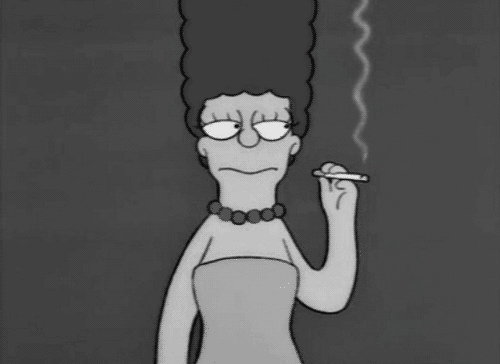
Amen.



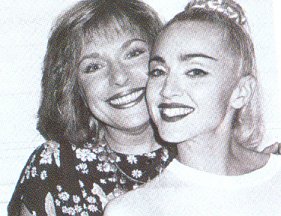
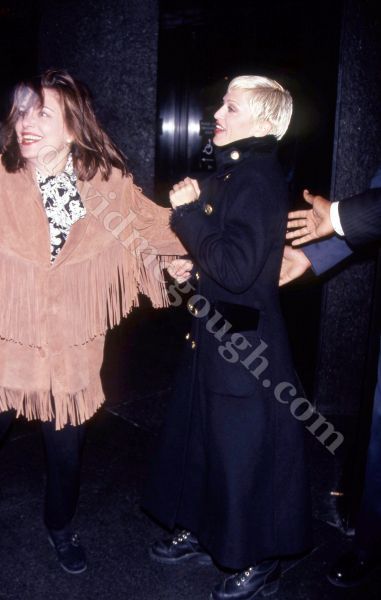


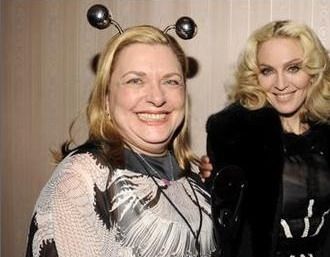



Something To Remember!
in ARCHIVE - Madonna
Posted
^ She actually sounded interested in putting out another volume when the suggestion came up during a Rebel Heart chat.